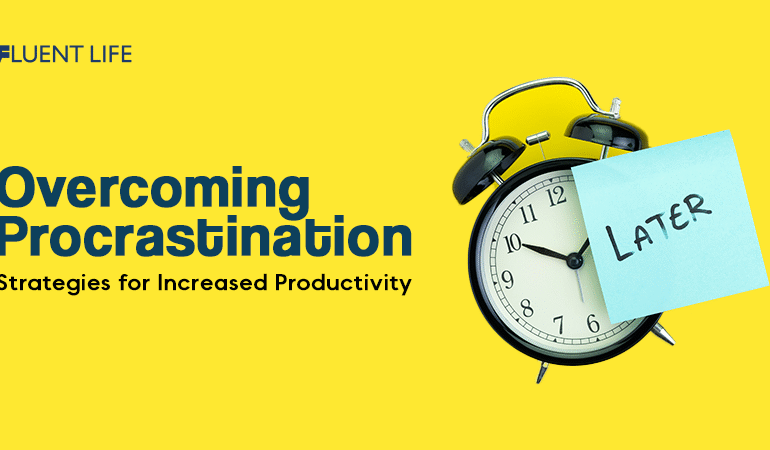Beat Procrastination & Achieve Your Goals

Conquering Procrastination: A Comprehensive Guide to Achieving Your Goals
We’ve all been there. That looming deadline, the project we keep putting off, the task we swear we’ll get to “later.” This is procrastination – a common struggle that can derail our progress and leave us feeling stressed and unproductive. But procrastination isn’t an insurmountable foe. It’s a behavior with roots, and understanding those roots is the first step towards breaking free and achieving your goals.
Understanding the “Why” of Procrastination
Procrastination isn’t simply laziness. It’s often driven by deeper psychological factors. Let’s explore some common culprits:
- Fear of Failure: This is a big one. The thought of not meeting expectations, doing something poorly, or being judged can paralyze us into inaction. We avoid starting because we fear the potential for a less-than-perfect outcome.
- Perfectionism: Closely related to fear of failure, perfectionism sets impossibly high standards. The belief that something needs to be flawless *before* it’s started can lead to endless postponement.
- Task Aversion: Some tasks are simply unpleasant – boring, difficult, or overwhelming. Our brains naturally gravitate towards more enjoyable activities.
- Lack of Clarity/Motivation: If you don’t understand *why* you need to do something, or the goal feels distant and abstract, it’s easy to put it off. A lack of motivation fuels procrastination.
- Poor Time Management & Organization: Feeling overwhelmed by a task because you don’t know where to start can lead to avoidance. A messy workspace and disorganized schedule contribute significantly.
- Impulsivity/Distractibility: Easily getting sidetracked by notifications, social media, or other tempting distractions makes it difficult to maintain focus on the task at hand.
Goal Setting: Laying the Foundation for Success
Effective goal-setting is crucial in combating procrastination. Vague goals are easily ignored; specific and well-defined ones are much more motivating.
- The SMART Framework: Use the SMART criteria to set goals that are Specific, Measurable, Achievable, Relevant, and Time-bound. For example, instead of “Get in shape,” try “Run a 5k race by December 31st.”
- Break Down Large Goals: Overwhelming goals are procrastination magnets. Divide them into smaller, manageable steps that feel less daunting. Think of it as creating a roadmap to your ultimate goal. Each small victory builds momentum and boosts motivation.
- Write Your Goals Down: The act of writing down your goals makes them more real and increases commitment. Keep them visible – post them on your fridge, set them as reminders on your phone, or keep a dedicated journal for tracking progress.
Time Management Techniques to Beat the Delay
Mastering time management is essential in overcoming procrastination. Here are some proven strategies:
- The Pomodoro Technique: Work in focused bursts (e.g., 25 minutes) followed by short breaks (5 minutes). After four “pomodoros,” take a longer break (15-30 minutes). This technique combats mental fatigue and improves concentration.
- Time Blocking: Schedule specific blocks of time for particular tasks in your calendar, treating them as appointments you can’t miss.
- Prioritization – The Eisenhower Matrix: Categorize tasks based on urgency and importance using the Eisenhower Matrix (also known as the Urgent/Important Matrix). Focus on important but not urgent tasks before they become crises. Delegate or eliminate less crucial activities.
- The Two-Minute Rule: If a task takes less than two minutes, do it *immediately*. This prevents small tasks from piling up and becoming overwhelming.
Taming Distractions – Reclaiming Your Focus
Distractions are the enemy of productivity. Identifying your triggers and creating an environment conducive to focus is key.

- Identify Your Triggers: What consistently pulls you away from your work? Social media, email notifications, noisy environments, chatty colleagues?
- Minimize External Distractions: Turn off unnecessary notifications on your phone and computer. Find a quiet workspace where you can concentrate. Use website blockers or apps to limit access to distracting websites.
- Create a Dedicated Workspace: Having a designated area for work helps signal to your brain that it’s time to focus.
- The “5-Minute Rule” for Distractions: If you feel the urge to check social media or do something else unrelated, tell yourself you’ll do it in 5 minutes *after* completing a small portion of your task. Often, the urge will subside.
Personalizing Your Approach
What works for one person may not work for another. Experiment with different strategies and find what resonates best with your personality and working style.
- Self-Compassion: Don’t beat yourself up for procrastinating. Acknowledge it, learn from it, and move forward with a positive attitude.
- Reward System: Establish a reward system for completing tasks or achieving milestones. This provides extra motivation and reinforces positive behavior. Rewards don’t have to be extravagant – they can be as simple as taking a short break to read a book or enjoying your favorite beverage.
- Accountability Partner: Tell someone about your goals and ask them to check in on your progress. Having an accountability partner can provide the extra push you need.
Conclusion: Taking Action & Building Momentum
Overcoming procrastination is a journey, not a destination. There will be setbacks along the way – that’s perfectly normal. The key is to keep experimenting with different strategies until you find what works best for *you*. Start small, build momentum, and celebrate your successes. By understanding the root causes of your procrastination and implementing these actionable techniques, you can break free from this cycle and achieve your goals with confidence.



